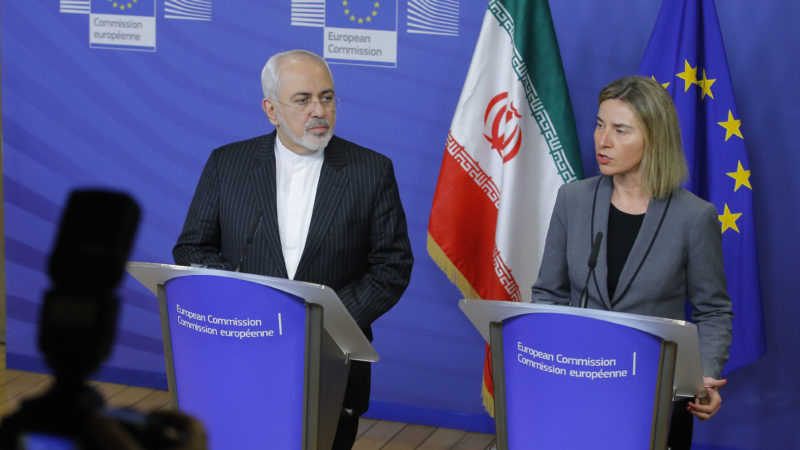With His Unilateral Policies, Trump Is Synchronizing Iran's Interests with Other World Powers

After months of threat by Donald Trump to impose the "toughest ever" sanctions against the Islamic Republic of Iran, November 4th, the deadline for return of sanctions, arrived, but the so-called "toughest sanctions" began with exceptions and exemptions for a number of countries. It was already clear that a president with inadequate legitimacy in both the domestic and international domains would not be able to forge a global consensus against Iran. The United States has violated the UN Security Council Resolution 2231, which is why other countries, including Iran's parties to the JCPOA, have announced that they will not follow these sanctions at the state level.
Therefore, in assessing the impact of sanctions on the economic and political situation in Iran, one should remember that although sanctions will definitely affect the Iranian economy -due to the economic might of the United States and the status of the US dollar in international trade, but lack of coordination with other powerful countries will stop US' sanctions from being the toughest sanctions of history for Iran.
From a political point of view, sanctions will also have a lighter impact on the political situation inside Iran due to the unlawful nature of US sanctions, lack of global support for those sanctions and the emphasis by other countries and international organizations on rightfulness of Iran in this case. Therefore, sanctions cannot fulfill US goals in this regard.
The exclusion of eight countries from US sanctions, although temporary, and serving Trump's specific political and economic goals, can soften immediate pressure on Iran's financial and economic system and leave breathing space for officials to develop a detailed assessment and planning and prepare for tougher sanctions.
The other positive and important point about these exemptions is the opportunity it creates to finalize the European Union's financial mechanism (the so-called Special Purpose Vehicle). Although European countries have already stated that they intend to support Iran in the course of sanctions, their financial mechanism needs more time to become operational. Thus, the exclusion of eight countries from the Iranian oil embargo, creates an opportunity EU to -if willing- prepare itself to support Iran.
With regard to EU support for Iran, it should be noted that this is not due to formation of any "mutual trust" or "strategic alliance" between Iran and the European side, but more because of the interests of the European Union and, of course, their struggle to preserve and display a facade of independence against the United States, and to prove their commitment to international agreements. That is, along with the EU's desire for Iran to stay in the JCPOA and not move forward with development of its nuclear program, the unilateral policies of the US government, the humiliation directed by Trump towards the European leaders, his self-serving, self-interest-based policies regarding NATO and, of course, his withdrawal from the JCPOA despite recommendations and requests by the European leaders, have offended the European Union and urged the European countries to stand up against the United States, although leaving a co-dependent relationship with Washington is hard and time-consuming for Europeans.
Thus, it seems that within the current circumstances, the Europeans could be serious in their cooperation with Iran, but this does not imply ineffectiveness of US sanctions, as large companies such as Siemens or Total, worried about their business with the United States, will remain reluctant to use the financial mechanisms designed by the European Union and have already announced that they will stop cooperating with Iran..
Hence, if Iran is fortunate and the sanctions period cuts short with Trump's failure to be reelected in the next presidential election, EU's financial mechanism can be a relief and a facilitator of Iran's economic and trade relations during the sanctions period.
Regarding the role of Russia, China and Turkey in supporting Iran against sanctions, it should also be noted that the alignment of the interests of these countries with Iran increases the likelihood of their co-operation. In international relations, "trust" in other countries has no place; what serves our country's interests here is to forge proximity between interests of us and them, of course, with the international commitments of those countries. Fortunately, the US President's self-centered, unilateral, and profiteering policies have not only targeted Iran, but also international and regional powers; sanctions against Russia, launch of a trade war with China and support for Kurds fighting against Turkey in Syria have led to an increase in tension and unfriendly relations between these countries and the United States. So it seems that in the current situation Iran’s need for global support is aligned with the interests of these countries in standing against the United States.

